Keeping it real: part two
In the second instalment of our two-part series, The AJN presents a more personal side of Jewish communal leaders Jillian Segal and Jeremy Leibler.
JILLIAN SEGAL
Executive Council of Australian Jewry president | Lawyer | Mother | Grandmother
Q: Who inspires you?
I draw inspiration from many people and perhaps, initially from my parents who made the brave decision to leave apartheid South Africa and immigrate to Australia in 1960, amongst the earliest of the immigrants from South Africa. More recently, a major inspiration has been an expanding group of young people. They are the John Monash Scholars and are chosen and nurtured by the John Monash Foundation (which I chair). They are Australia’s future leaders who are amazing, inspiring and intimidating all at once – they are dedicated to building a better Australia, and I am sure they will succeed.
Q: Do you listen to podcasts?
Occasionally. I’m not a podcast junkie and rarely have time but I do listen to Conversations on the ABC.
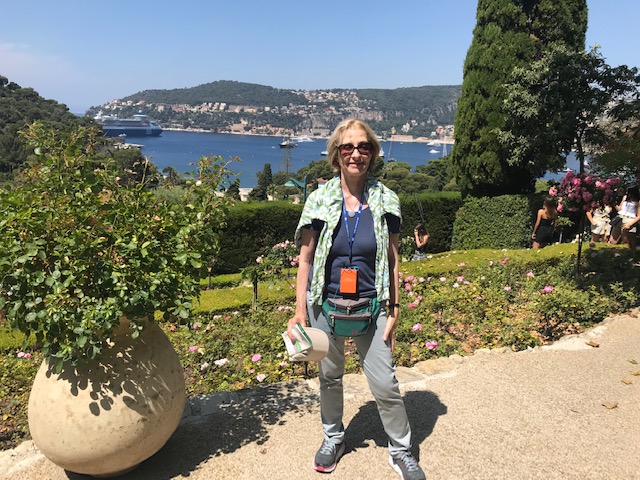
Q: Are you a Netflix fan?
I never seem to have enough time to see all I would wish to (and I prefer going to the movies and theatre with friends) but I have watched The Crown and I love the Wiggles which I watch with my grandkids.
Q: What brings you happiness and calm?
I belong to a book club and love reading, and when I finish the allocated book for that month, I am happy! I can go to the book club and actually contribute to the discussion. Belonging to a book club (for over 25 years) is wonderful because it encourages me to read books that I wouldn’t otherwise read – great novels, non-fiction, Booker Prize winners, international writers etc. What brings me calm? Walking and kayaking with my husband, and handing my grandchildren back to their parents after an overnight stay!
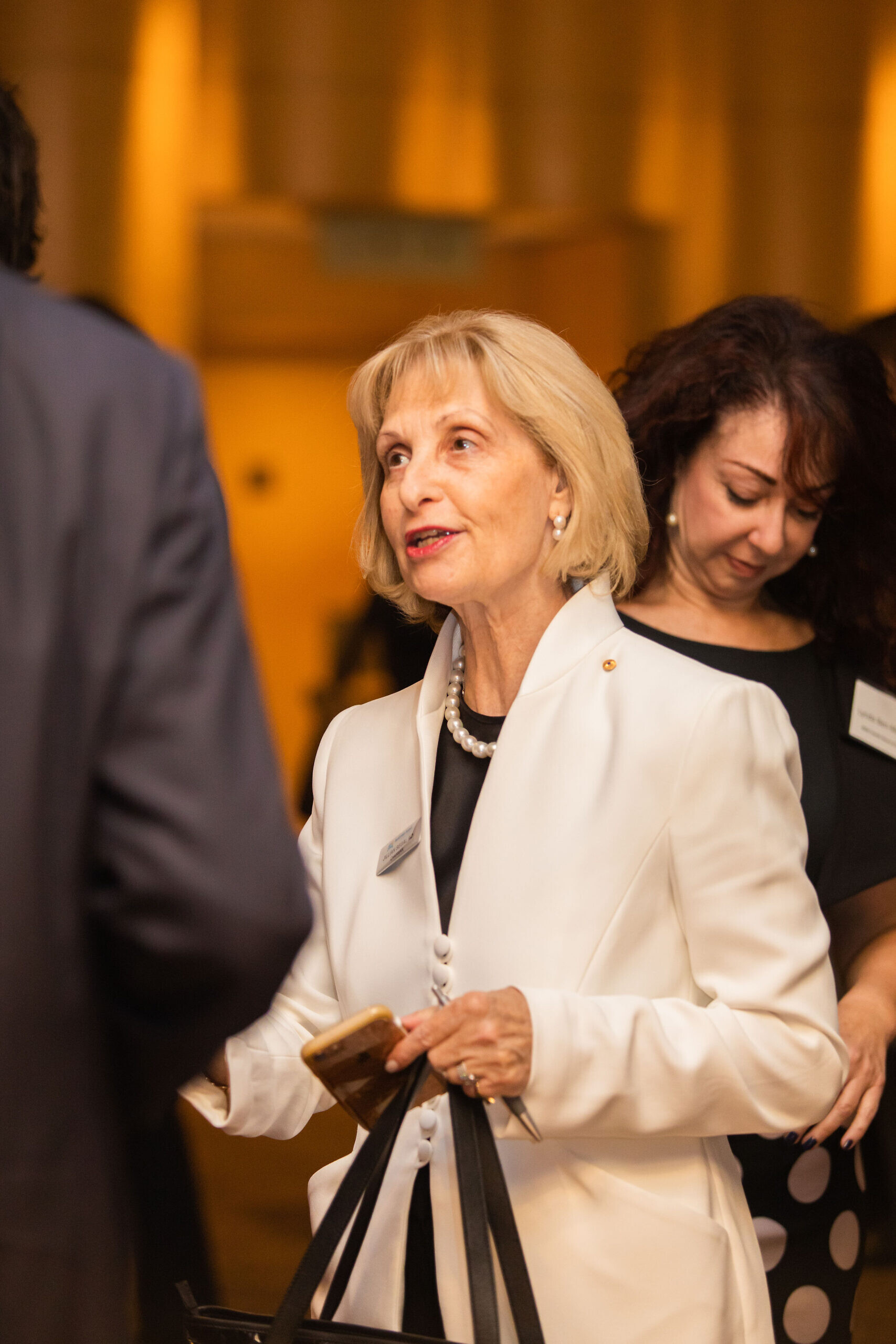
Q: What did you want to be when you grew up?
I think I was brought up in a very traditional Jewish home and I always wanted to grow up to be a professional in some form, with the capacity for financial independence. So for me the choice was either a lawyer or a doctor.
Q: A moment which changed or shaped you is …
I think that’s a hard question. Perhaps, getting married was a key turning point. Fortunately for me it was an excellent turning point and we are still happily together 40 years later with two great children and two gorgeous grandchildren.
Q: Your next holiday is?
We are off to Israel on a couple of missions, and then Italy – depending on what happens with coronavirus. We are actually going to Israel on one of the El Al test direct flights. We will be interested in seeing how that goes.
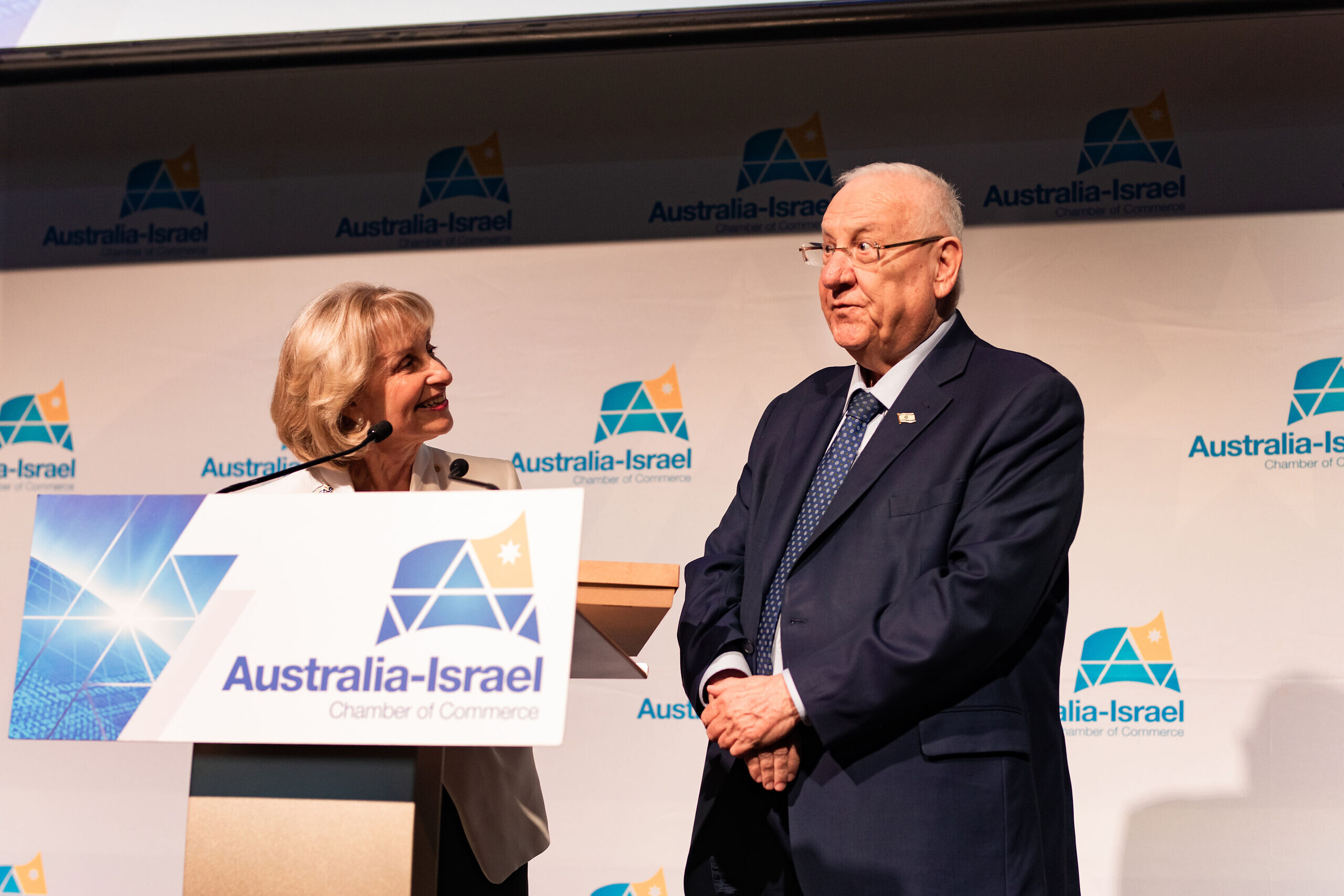
Q: What inspired you into community work?
I have always been interested in the resilience and the continuity of the Jewish community and so I was drawn into being engaged initially with Women Power which was and continues to be a very small and important organisation in encouraging women to be engaged in community leadership. That led me to put my hand up for the JCA and that started a very long and important association for me with the JCA and then with JBOD, and now the ECAJ. All our community organisations would benefit from more women being involved.
Q: Your greatest hope for the world is …
I think the greatest hope that I have for the world is for its long-term sustainability, and for the better angels of our nature to come to the fore and for there to be less conflict.
Q: Some of the best advice you’ve ever received was …
Don’t sweat the small stuff.
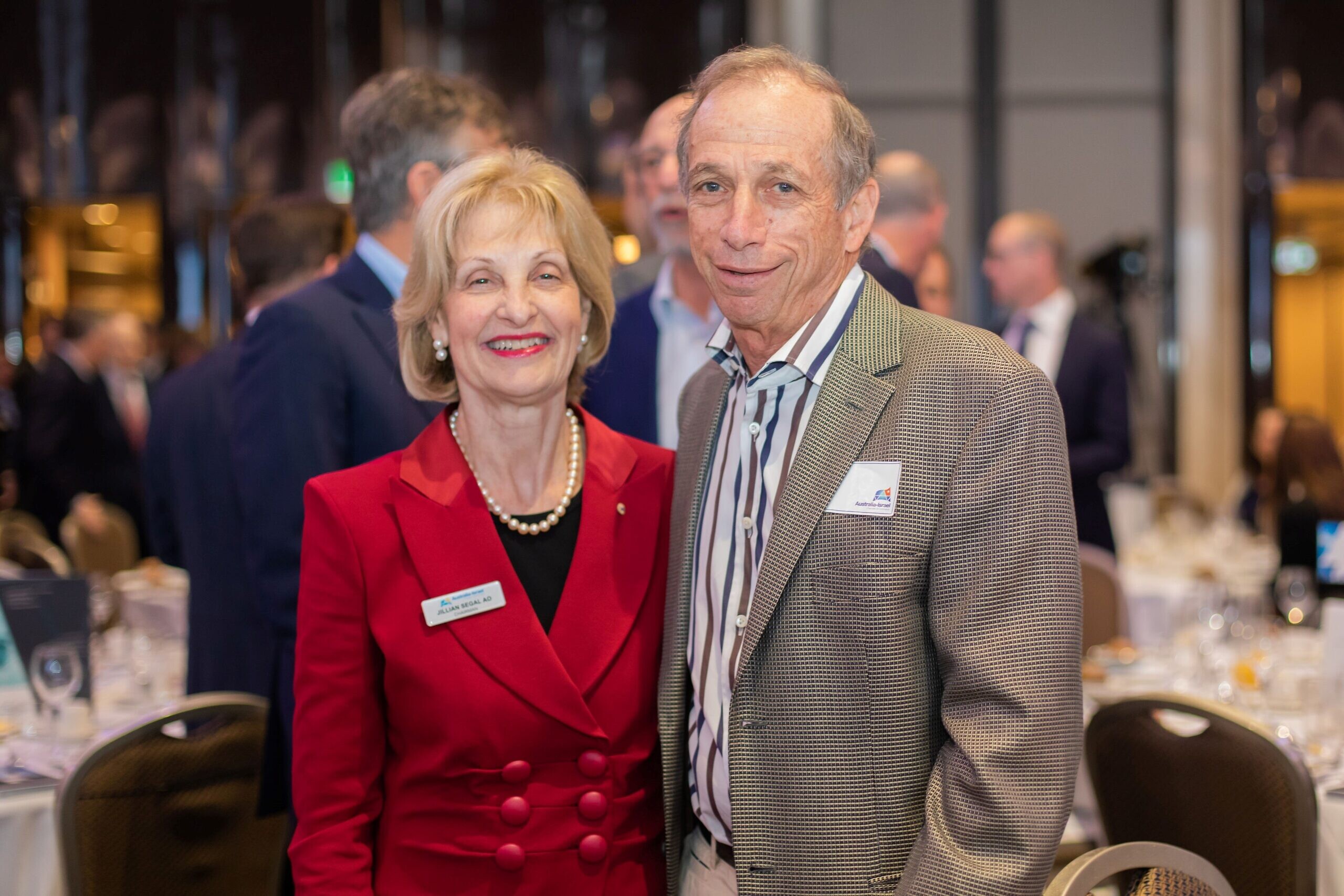
Q: Is there a particularly poignant moment or experience which shaped your Jewish identity?
I think actually getting married under the chuppah in my parents’ small apartment, brought home to me that Judaism can be very flexible, adaptable and personal, despite all the tradition that we have.
Q: Without the accomplishments and titles and roles to your name, who are you at your core? In a sentence, how would you describe your truest and most authentic self?
I’m a lawyer, so I can’t describe anything in just one sentence. It needs at least three or four! I’m a very proud daughter, sister, wife, mother, mother-in-law and grandmother. Secondly I am a very proud Australian and very grateful because as an immigrant I appreciate the opportunities and privileges I have been given in this wonderful country.
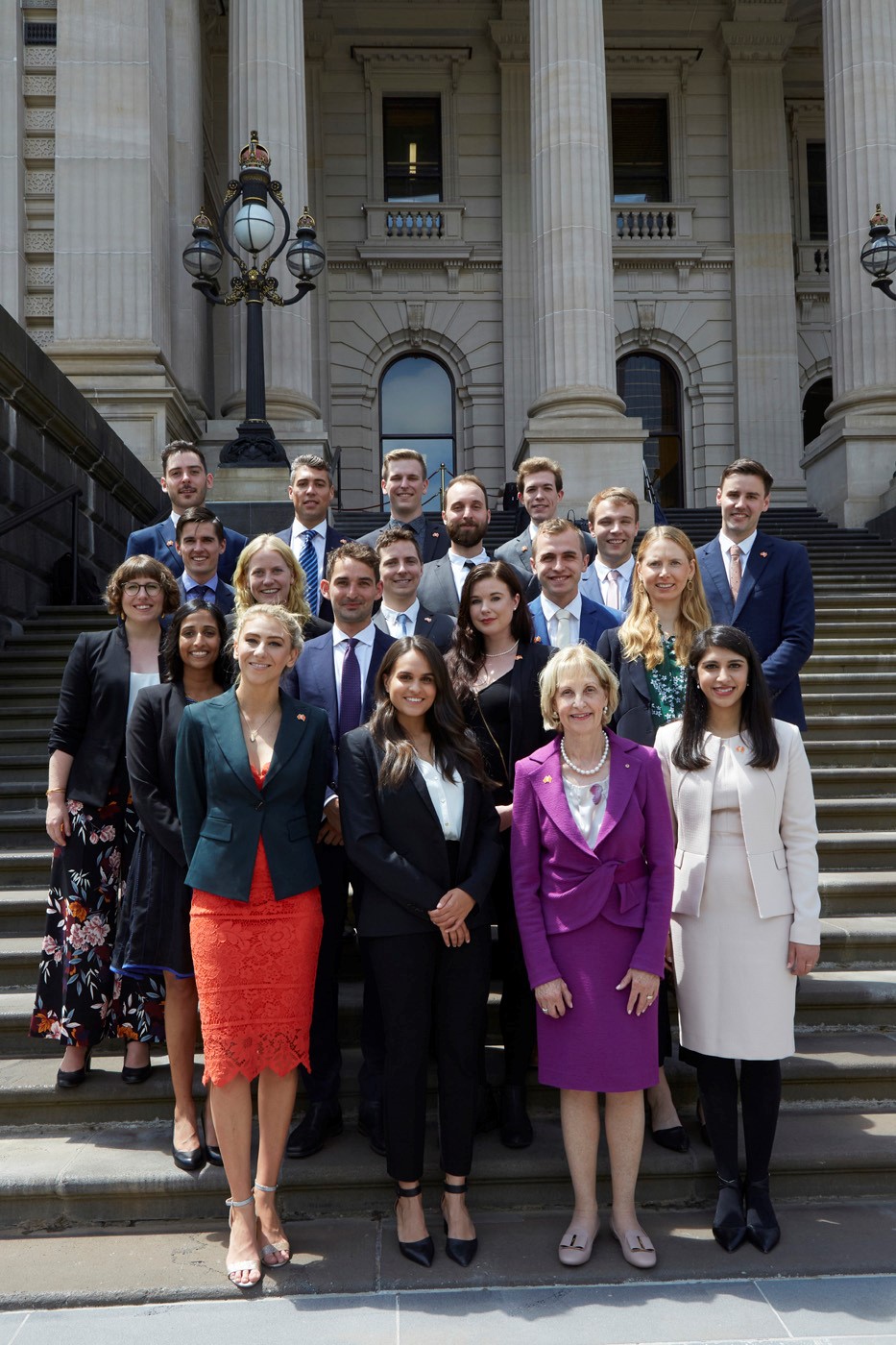
I am also a proud member of the Jewish community and I have worked very, very hard for many years for the strength and continuity of the community and its institutions.
And, finally I am a proud supporter of Israel, not only for historical and religious reasons, but also because I’ve seen through my Australia-Israel Chamber of Commerce role, that Israel, with its innovation, and its fantastic chutzpah and drive, can actually be a wonderful light and leader to the rest of the world, in terms of solving some of our greatest challenges from energy, water and food to cyber, artificial intelligence and health.
Q: As a woman leader, have you encountered any challenges, and if so, how did you overcome them?
Any career and leadership role has challenges particularly with juggling work and family but I have managed with a lot of support from my husband and family.
JEREMY LEIBLER
Zionist Federation of Australia president | Lawyer | Father
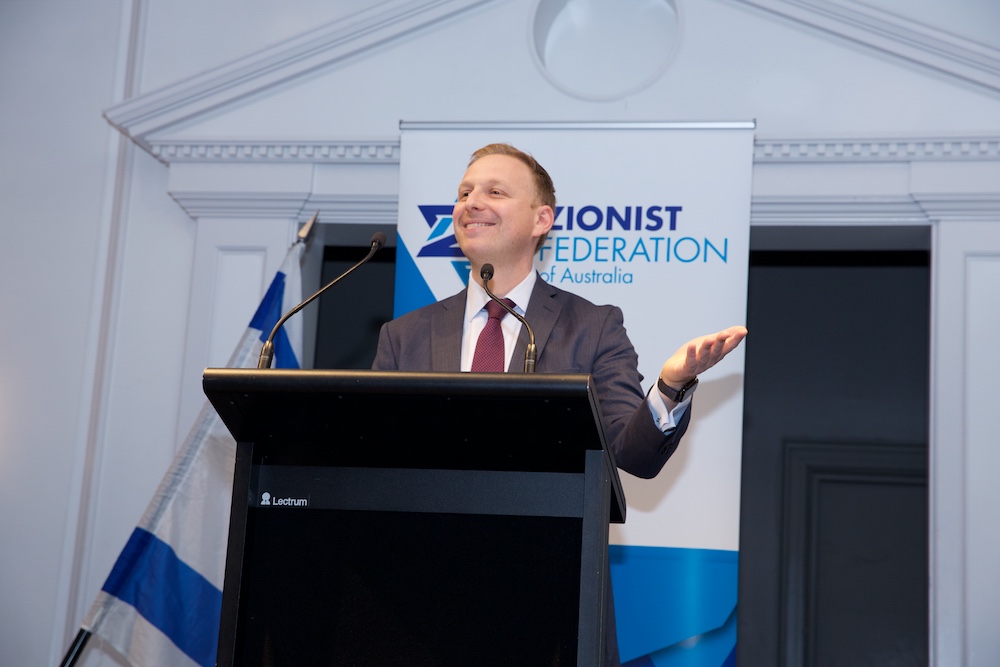
Q: Do you listen to podcasts?
I listen to audio books in the car. It’s a great way to get through my bucket list of books when I don’t have much time to read during the week. I read a lot on Shabbat and over the weekend. I’ve just finished Daniel Gordis’s book called We Stand Divided. I’m quite fascinated by the evolution and dynamic between Diaspora Jewry and Israel. For us in Australia, that is one of the biggest challenges; are we going to follow in the footsteps of US Jewry in terms of its connection with Israel, or are we intrinsically a unique community? There are certain trends that we will inevitably follow, but are we fundamentally a different community? The jury is still out on that question.
Q: Your ultimate Jewish comfort food is …
Chicken soup, of course. My mother’s chicken soup.
Q: Do you ever cook?
I dabble. I make a good steak. I’ve recently been dabbling in some creative herring – with varying degrees of success. Most of my family think it is inedible, but I’ve got a couple of fans.
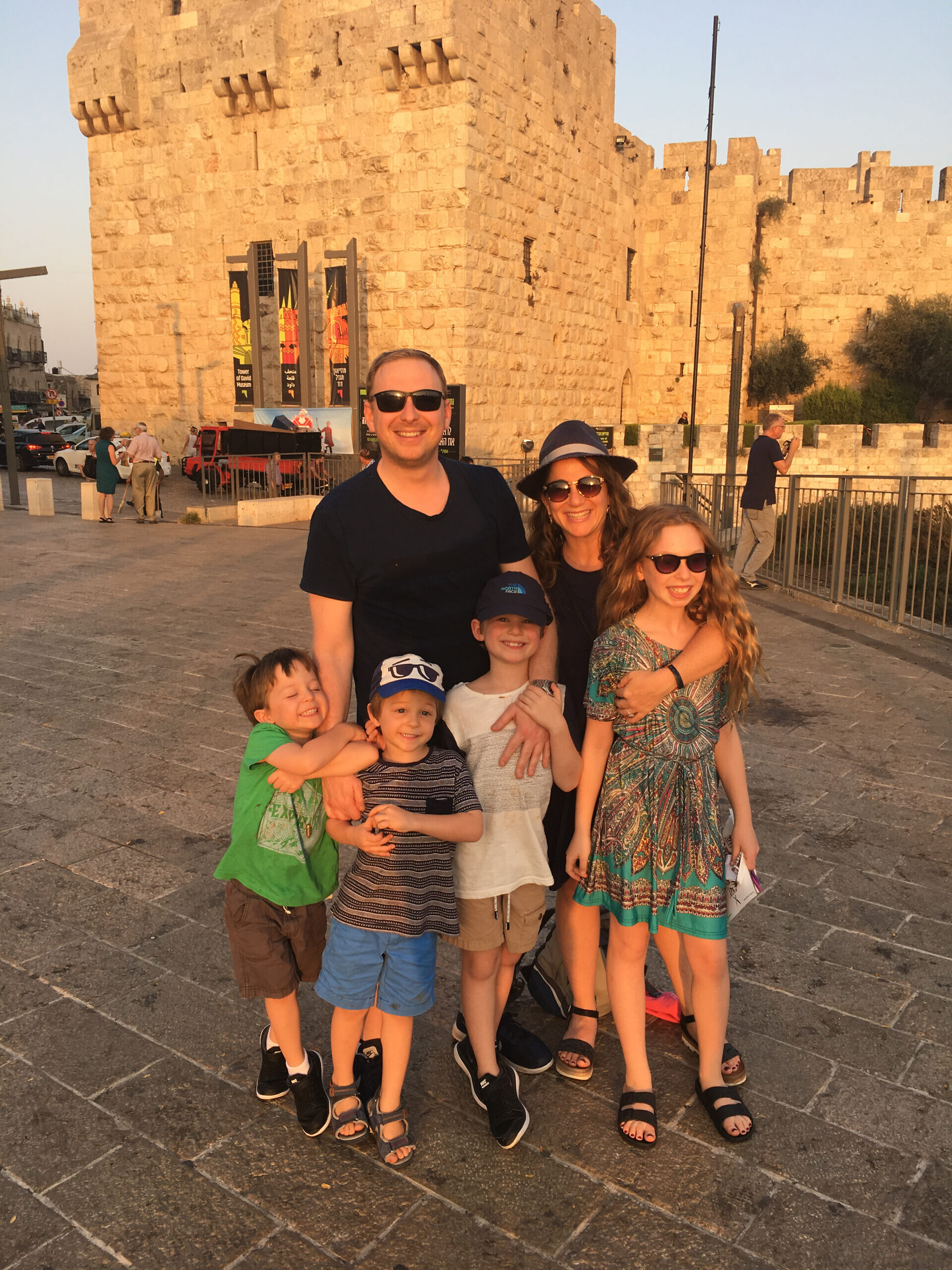
Q: Something on your bucket list?
I’d love to do a roots trip to Europe and see where my grandparents grew up before the war. On my mother’s side, they were in Czechoslovakia, and on my father’s side, they were originally from Poland, but they lived in Belgium, they were in the diamond trade.
Q: My pet peeve is …
People not responding to emails or phone calls. I will always return any email or phone call within 24 hours. Even if it is just to respond to say, sorry, I’m flat out and I will get back to you in 2-3 days.
Q: Who inspires you?
I am very privileged to have many sources of inspiration in my life but my father would be at the top of that list. I think one of the most difficult challenges today is to strike the right balance between one’s professional life and family life. He has always managed to somehow be a present and involved father first yet maintain a successful, busy and demanding professional life. No doubt my mother is a big reason for that and so they are both a significant source of inspiration for me.
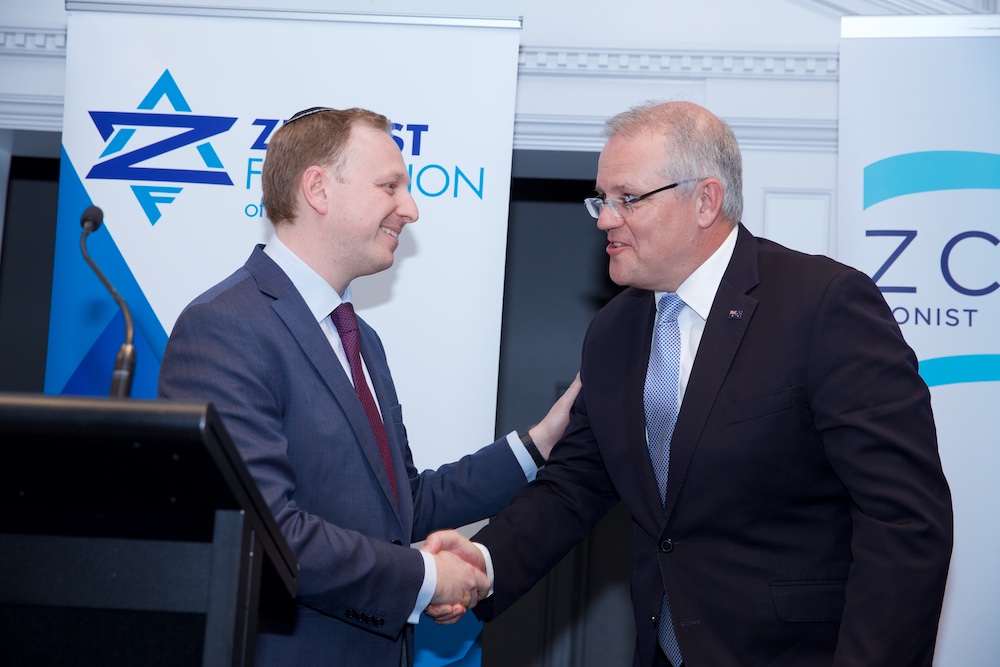
Q: What is your morning ritual that sets you up for the day?
I usually get up at about 6 o’clock. I wish I could say that I get up and go for a run every morning but I usually wake up to one, two or three children in my bed – which as it happens, also isn’t a bad way to wake up! Then I am checking my emails and catching up on the news.
Q: What brings you happiness and calm?
My wife and children – well certainly the happiness part – not sure there is much calm other than on Shabbat when all of our devices disappear and we can engage in a far more meaningful way. Shabbat and the cycle of Jewish life keeps me sane and grounded.
Q: What did you want to be when you grew up?
Prime Minister [laughs] … until I was about 30. I may have been slightly naive as to what that involved. It was actually Prime Minister of Israel, but given I am yet to receive a phone call from President Rivlin to form government, I think I may have missed that boat.
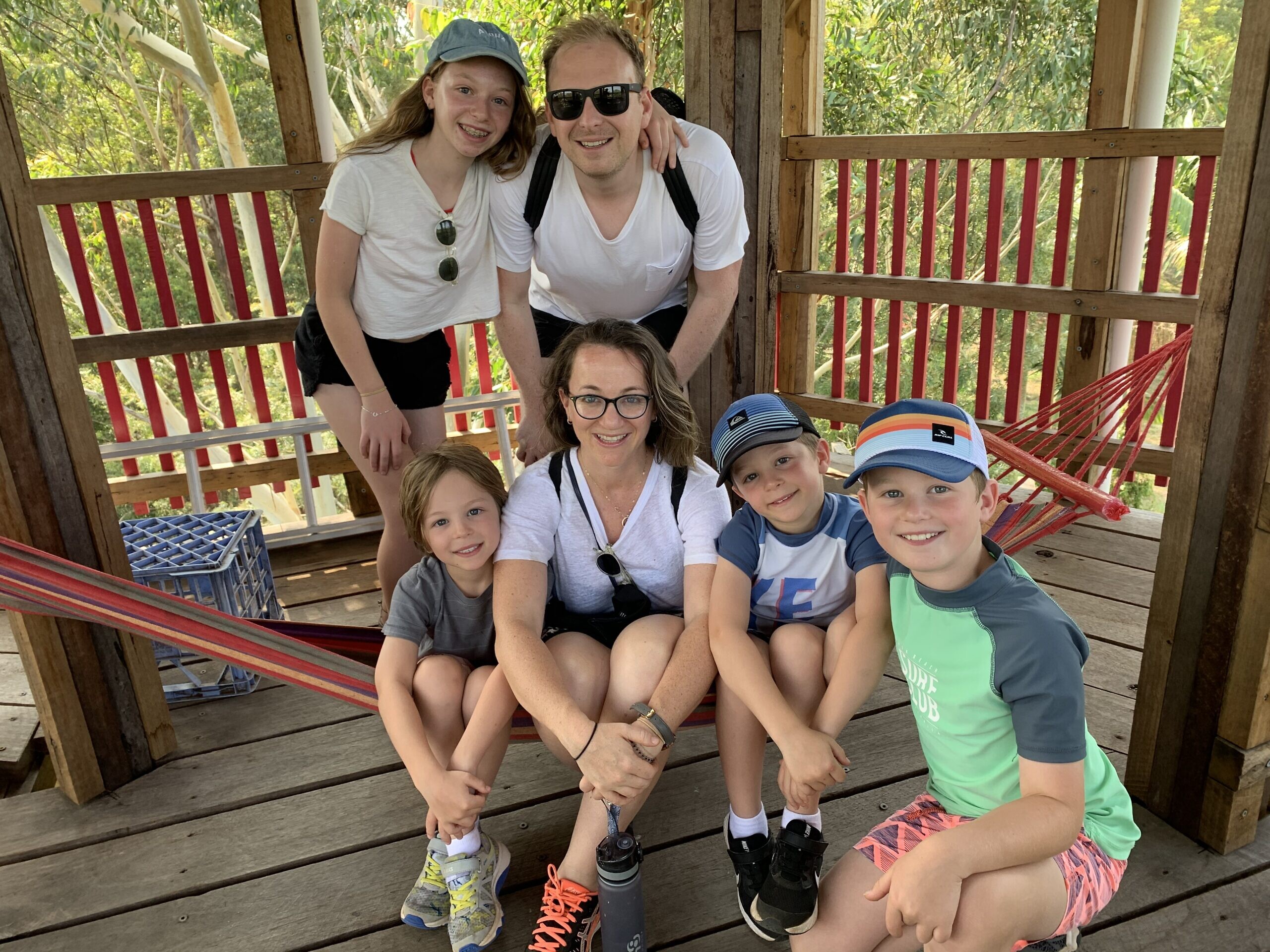 Q: Beyond your involvement in the community, what makes you feel passionate?
Q: Beyond your involvement in the community, what makes you feel passionate?
Having the good fortune of being intimately involved in my children’s lives is an enormous privilege and no doubt the most fulfilling part of my life.
Q: How would you describe the experience of growing up in a well-known communal family?
Our Shabbat table conversations were not for the faint hearted! We were forever debating and arguing about current events, so to some extent I cut my teeth around the family table. I was also privileged to have had the opportunity to meet many interesting and inspiring people growing up which certainly had an impact on my world view. But the consistent lesson that I learned growing up and that I try to convey to my own children is that with hard work, persistence and a clear vision, we all have the capacity to have an impact on those around us at both a grass roots level and also on a macro level.
Q: Was there a moment in particular that sparked that realisation?
In general, it was by osmosis. But I do recall as a relatively young child following the role that my father played when he was president of the Zionist Federation in overturning the infamous UN resolution equating Zionism with racism. It was an early lesson in the importance of thinking big and not being intimidated by the scale of a problem. As a result of his efforts, Australia was the first country to pass a bipartisan resolution calling for the revocation of that resolution and the US Congress ultimately followed Australia and adopted what became known as the “Australian resolution” which led to the vote to overturn it at the UN.
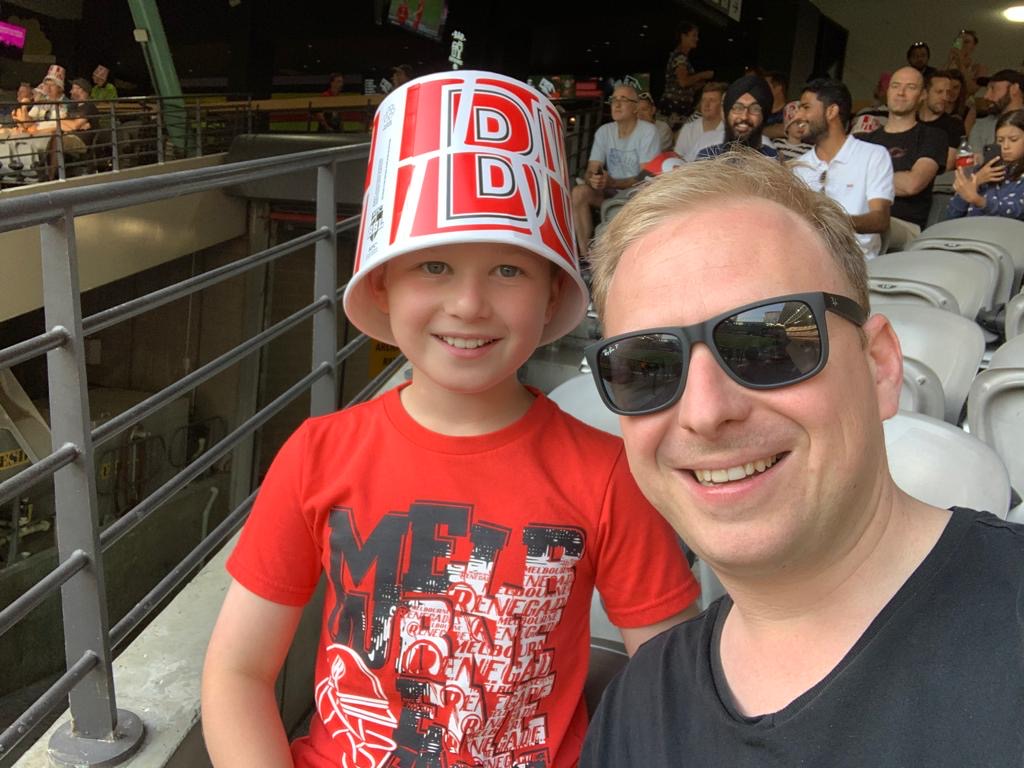 Q: Are there any experiences you’ve had in Israel on which you reflect particularly fondly?
Q: Are there any experiences you’ve had in Israel on which you reflect particularly fondly?
There were two formative experiences I had in Israel which had a profound impact on my life. The first was my shnat year where I participated in a Bnei Akiva program and the second was just after I got married and finished university, when my wife and I spent six months working and living in Jerusalem. One thing that struck me throughout both of those experiences was the simple act of picking up a newspaper and realising that my past and future were intimately connected to the events that were being covered in the paper. It left me with a lasting desire to do whatever I can to play my own role in the story of the Jewish people. It was also a reminder that the State of Israel is and will forever be at the centre of that story. And that is why it is critically important that we in the Diaspora remain connected to the State of Israel despite our geographical distance.
Q: Your greatest fear is …
Once we put aside the fundamental fears that are innate to everyone; worrying about the health and wellbeing of our family and friends, I think my greatest fear is to fail to seize on the incredible opportunities that we have today to live a meaningful and fulfilling life that positively impacts the people around us. We are living in extraordinary times and with that privilege comes an obligation to make the most of it!
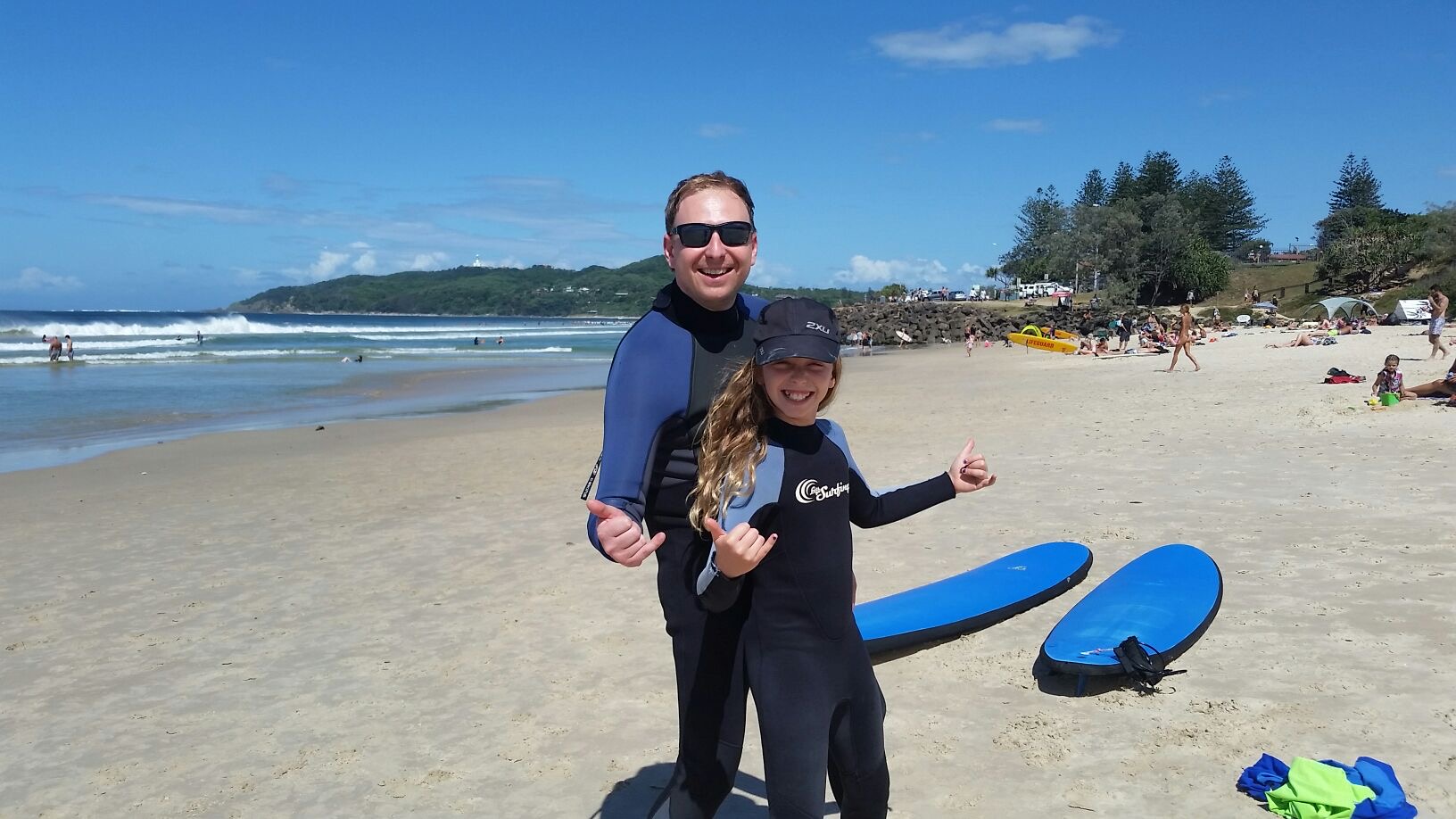 Q: In retrospect, what advice would you give to your 18-year-old self?
Q: In retrospect, what advice would you give to your 18-year-old self?
It’s a long list [laughs]. Probably to experience a bit more of what life has to offer and to further develop my own identity by exposing myself to things outside of my comfort zone.
Q: What were you like at 18?
My wife described me as a super dork but my mother disagrees.
Q: A poignant moment which shaped or played a key part in shaping your Jewish identity is …
One moment would be having an intimate Shabbat dinner with Natan Sharansky and discussing with him the impact that his years in a Russian prison had on his own Jewish identity and world view.
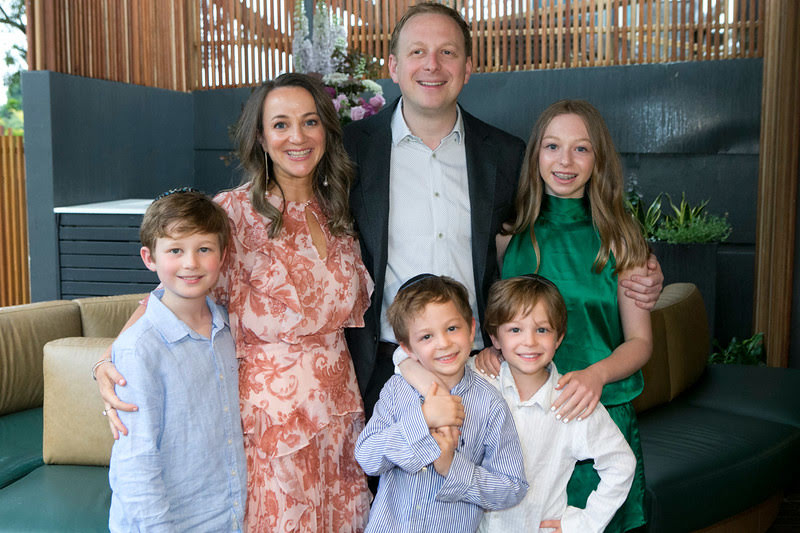 His story is a reminder of how lucky we are to live during this period of Jewish history where we have the State of Israel. His fate and the fate of many others would be profoundly different without it.
His story is a reminder of how lucky we are to live during this period of Jewish history where we have the State of Israel. His fate and the fate of many others would be profoundly different without it.
Q: Without all the titles and the accomplishments, who are you at your core? What is your most authentic self?
A dad.

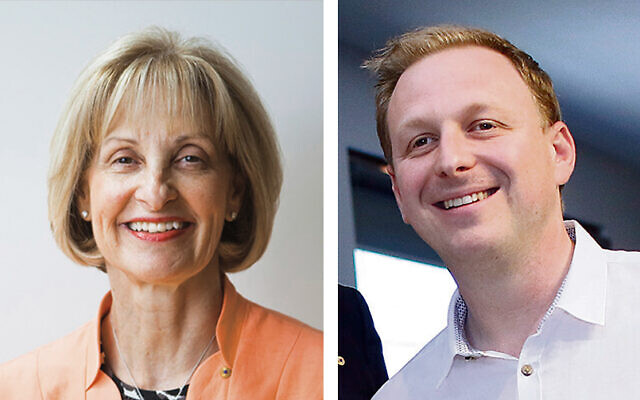
comments